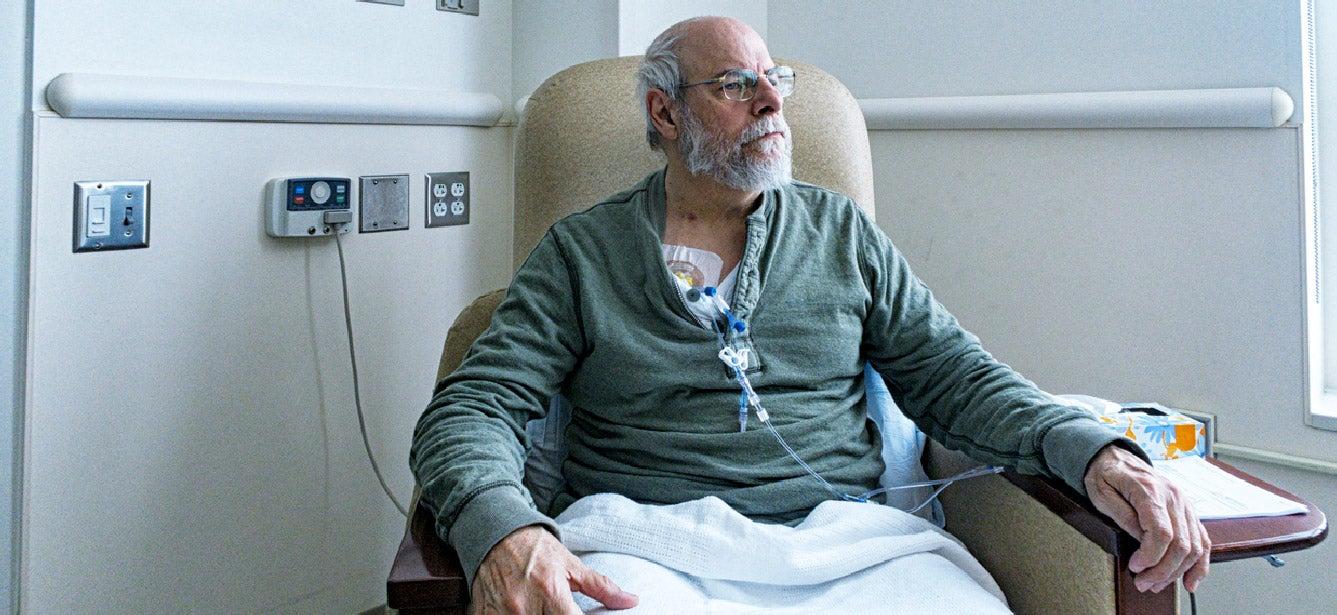Advance Directives: What Are They and When Should You Create One?
7 min read

Related Topics
No doubt about it: the American population is growing older at a much faster rate than we’ve seen since the decade between 1880 and 1890.1 For many of us, this trend portends greater longevity … as well as the inescapable realities that come with advancing age.
“The 100-year life is certainly much more realistic today than it used to be,” said Kathleen Cameron, former Senior Director of NCOA’s Center for Healthy Aging. “And the older we get, the more likely it becomes that we will develop one or more health issues that could impact the way our final years unfold. End-of-life care planning is therefore increasingly important. It’s another smart strategy—like retirement planning—that each of us can use to help ensure we age well and age with dignity.”
To wit: more than 6.7 million people age 65 or older in the United States live with Alzheimer’s disease or another form of dementia already, according to the Alzheimer’s Foundation. And experts predict that number will more than double between now and 2050.2
What if you or a loved one is among that number? Or what if you become incapacitated by a different disease, a terminal illness, or even an accident? How would you want the end of your life to look when you may not be able to communicate your vision for it?
“Many people avoid having discussions around end-of-life care because the idea of it alone feels uncomfortable,” Cameron said. “But talking about your preferences—and setting them down on paper—can actually alleviate some of that discomfort. It helps your loved ones and caregivers honor your wishes in a way they know you intended. And that can offer peace of mind for everyone involved—yourself included.”
That’s where advance directives come in. And the best time to create one is right now, before you need it.
Ready to get started? Here’s everything you need to know.
What is an advance directive?
Anyone, at any age, can suddenly face an unexpected situation that requires another person to step in and make important medical decisions. Advance directives help health care providers understand exactly what kinds of treatment you would and would not want if you can’t speak up for yourself.
These are written documents that are intended for times when you might be unable to process information and/or communicate due to:
- Head trauma
- Persistent coma
- Late-stage dementia
- Debilitating stroke
- Terminal illness
- Other instances of mental incapacity
“Keep in mind: as long as you can state your wishes, you can always choose or refuse care,” Cameron explained.
This is important to point out, she said, because some people worry about giving up their decision-making power once they commit their wishes to paper. “That’s not at all the case,” she said. “Advance directives never take the place of your own autonomy.”
In fact, according to the National Institute on Aging, advance directives can only apply if and when you can’t express your own wishes yourself.3
Types of advance directives
“Advance directive” is actually an umbrella term that covers a few legal documents. These documents work together to clearly communicate your instructions for end-of-life care and include:
Living wills
Think of a living will as a guidebook for your doctors and other medical professionals to follow. If you are ever in an end-of-life situation and can’t tell your health care providers what you want, they can consult your living will for guidance.
A living will should outline, as specifically as possible, what kinds of medical interventions you do and do not want. Commonly, it answers questions such as:
- Should doctors extend my life at all costs?
- If so, what treatments do I want and for how long?
- If not, when should they withhold or withdraw treatment?
- How should they manage my pain?
- Should they donate my organs?
“These questions can feel really big,” Cameron said. “It can be helpful to talk to your health care team about how best to answer them in a way that’s meaningful and right for you.”
Take cardiopulmonary resuscitation (CPR), for example. Depending on your age and overall health, you absolutely may want your medical team to provide it if your heart stops. On the other hand, CPR can be a particularly damaging intervention for people with age- or illness-related frailty. If this describes you, you may decide that its risks outweigh any potential rewards.
As you begin to gather your thoughts around these issues and prepare to discuss them with your doctor or other provider, here are some other common end-of-life treatments to ask about—so you can record your preferences about whether you want them, when, and for how long:
- Antibiotics
- Defibrillators
- Feeding tubes
- Dialysis
- Ventilators
One other thing to know: If you are enrolled in Medicare, Part B covers advance care planning as part of your annual wellness visit.
Medical power of attorney
This document names a person—your “health care proxy”—who will make decisions on your behalf based on what they know about your wishes and personal values. Ideally, you will choose a loved one, trusted friend, or established caregiver to serve in this vital role of designated spokesperson.
“Not only that, but it’s also important that you have real conversations with your proxy about what you want,” Cameron advised. “While you won’t be able to anticipate every possible situation, these discussions can provide a solid foundation for your proxy to stand on. They won’t feel as if they have to guess during a stressful, vulnerable, and emotional time.”
There’s no legal requirement that you designate a medical power of attorney (also called “durable power of attorney for health care”).4 However, it’s in your best interest to do so. Otherwise, state law will determine who your health care proxy will be—and it may not be a person you’ve ever met.5
How to create an advance directive
The easiest way to start is to use a fillable form. Most hospitals, doctors’ offices, and senior centers make these available for free.
The American Bar Association provides additional information on designating a medical power of attorney. You can also find specific advance directive laws and forms by state.
And take your time. As you read through the forms, reflect on your values and consider how to approach end-of-life care planning conversations with the people who are closest to you. You might not even know exactly what you want yet; creating an advance directive is as much about the process as it is about the product. Don’t pressure yourself to make big decisions overnight.
Finally, Cameron said, “remember that advance directives exist to ease your mind. The best-case scenario is that your living will and health care proxy forms sit with your other important papers and never get used.”
Advance directive FAQ
Are advance directives legally binding?
No. But they are legally recognized.6
This means that medical professionals and health care proxies must do their best to abide by your written wishes. It also recognizes the impossibility of anticipating every possible circumstance. The simplest way to think about this is that advance directives follow the spirit of the law, but not always the letter of the law.
Also: while advance directives are legal documents, you do not need to pay a lawyer to prepare them for you.
Do doctors have to follow my advance directives?
Yes, with caveats.6 While unusual, a doctor may decide that your wishes are not medically appropriate given the situation you’re in. Or, they may object to your wishes based on their own conscience.
In either situation, the doctor must transfer your care to a different provider who will agree to honor your directives.
Should I update my advance directives?
Yes. As your life and health status change, so might your thoughts about and preferences for end-of-life care. It’s a good idea to make a habit of reviewing these documents once a year to make sure they still reflect your current wishes.
Sources
1. United States Census Bureau. 2020 Census: 1 in 6 People in the United States Were 65 and Over. Found on the internet at https://www.census.gov/library/stories/2023/05/2020-census-united-states-older-population-grew.html
2. Alzheimer’s Association. 2023 Alzheimer’s Disease Facts and Figures. Found on the internet at https://www.alz.org/media/Documents/alzheimers-facts-and-figures.pdf
3. National Institute on Aging. Advance Care Planning: Advance Directives for Health Care. Found on the internet at https://www.nia.nih.gov/health/advance-care-planning-advance-directives-health-care
4. Medicare Interactive. Health care proxies. Found on the internet at https://www.medicareinteractive.org/get-answers/planning-for-medicare-and-securing-quality-care/preparing-for-future-health-care-needs/health-care-proxies
5. Medicare Interactive. The importance of putting future care wishes in writing. Found on the internet at https://www.medicareinteractive.org/get-answers/planning-for-medicare-and-securing-quality-care/preparing-for-future-health-care-needs/the-importance-of-putting-future-care-wishes-in-writing
6. American Bar Association. Myths and Facts About Health Care Advance Directives. Found on the internet at https://www.americanbar.org/groups/law_aging/publications/bifocal/vol_37/issue_1_october2015/myths_and_facts_advance_directives/



